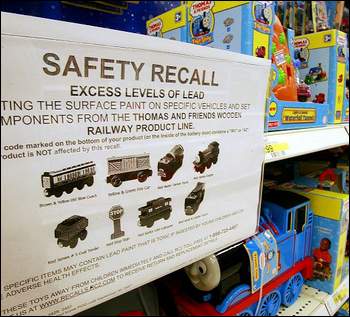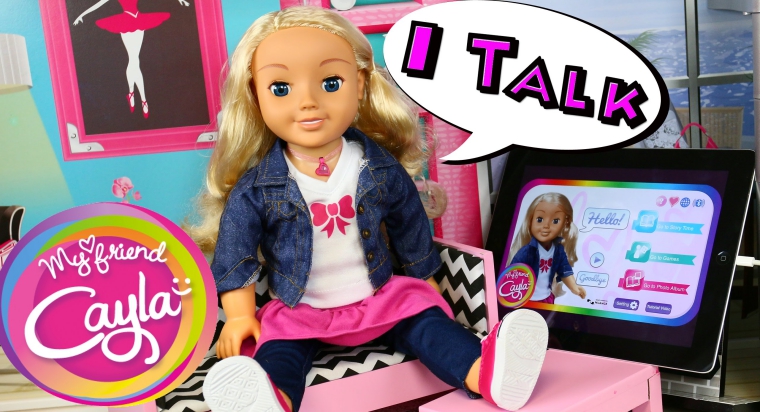Nightmarish Tales of China Sourcing: Time, Money, and Toy Dolls Gone Rogue
November 7, 2023
Once upon a time, in a world where every product seemed to bear the tag “Made in China,” there existed a treasure trove of China-sourcing horror stories. These stories will make you cringe, shrink, and pity the companies involved. From recalls that threatened global giants to rogue toy dolls in Germany, the comedy of errors in sourcing knows no bounds. But fret not, for hidden amidst these calamities are valuable lessons on how sourcing experts can prevent disasters, saving companies millions in time, money, and reputation.
The Mattel Toy Recall: A 2007 Epic Fail in China Sourcing
Our story begins with a name you’ve likely heard before – Mattel, the colossal American toy company. In 2007, Mattel experienced what can only be described as a global-scale nightmare. They were the proud owners of several popular toy brands, and a substantial portion of these toys were manufactured in China.
The Chinese factories, it turned out, had been subcontracting to other, less regulated manufacturers. These sub-subcontractors were not quite up to Mattel’s high safety standards. The fallout? A jaw-dropping 19 million toys were recalled due to safety concerns. The issue? Small magnets that could easily detach and pose a choking hazard, and lead-based paint that could be toxic when ingested.
Mattel’s colossal blunder cost them a staggering $110 million and a reputation tarnished like lead-painted toys.

Cayla the Toy Doll’s German Kill Order
In the bizarre world of China-sourcing fiascos, Cayla the toy doll had its own unique story. In 2017, Germany banned the sale of the seemingly innocent Cayla for reasons that would make a great plot for a science fiction comedy.
Cayla was an interactive toy doll designed to answer questions and engage in conversations with children. However, its smart functionality came at a cost. Researchers discovered a peculiar and unsettling vulnerability – the doll could be hacked. Hackers could use the doll’s Bluetooth connection to eavesdrop on conversations and potentially interact with the child. As a result, Germany declared Cayla an illegal surveillance device and ordered its removal from stores.
The Cayla saga cost the doll’s manufacturer, Genesis Toys, a substantial sum, including the cost of recalling thousands of dolls and potential legal fees.
The Poisonous Toothpaste Debacle
Staying in the realm of things you’d never expect to hear in a sourcing horror story, we have the infamous poisonous toothpaste scandal. In 2007, reports emerged about toothpaste from China containing a toxic substance – diethylene glycol. Diethylene glycol is commonly used in antifreeze. Yes, you read that right… antifreeze in toothpaste.
The toothpaste was distributed globally. Numerous recalls and lawsuits ensued, causing significant financial strain and tarnishing the image of the companies involved.
The Poisoned Pet Food Debacle
In the realm of surreal China-sourcing mishaps, there’s the notorious case of poisoned pet food. In 2007, a slew of pets in the United States fell gravely ill or died, all due to tainted pet food. The common denominator? The pet food was traced back to China, where it had been laced with melamine. Melamine is a toxic substance used to artificially inflate the protein content of the food.
This fiasco wasn’t a laughing matter, as countless pet owners suffered heartache and financial loss. The ensuing lawsuits and recalls cost companies in the pet food industry millions of dollars, not to mention the impact on their reputation. It also underscores the importance of rigorous quality control and supplier verification.
Lessons Learned from China Sourcing Horrors
In the annals of China-sourcing horror stories, these tales of misadventures stand out as both cautionary and absurd. There are many more, less exciting horror stories, of course. Stories such as the Christmas tree shipment that arrived in January and the drywall that smelled of rotten eggs. While the consequences for the companies involved were often severe, there’s a peculiar humor in the sheer magnitude, audacity, incompetence, and bizarre decision-making of these fiascos.
But, good news, none of these problems are inevitable. If you pay attention to details and implement a good sourcing plan you can be sure to avoid all of them. Sourcing experts, with their wealth of knowledge and experience, can help businesses navigate the complex world of global sourcing. By carefully specifying product details; conducting thorough audits, enforcing quality control measures, and ensuring compliance with safety standards, these experts are an excellent safeguard against the calamities that befell the companies in our stories.
So, the next time you see a “Made in China” label, remember the surreal stories behind it and let out a chuckle or two amidst the facepalms. After all, if these things happen to large, presumably well-run companies, they can happen to the little importers as well. It’s the sourcing experts who are the unsung heroes behind the scenes. They ensure that the next chapter in the “Made in China” saga is one of success, not scandal.

